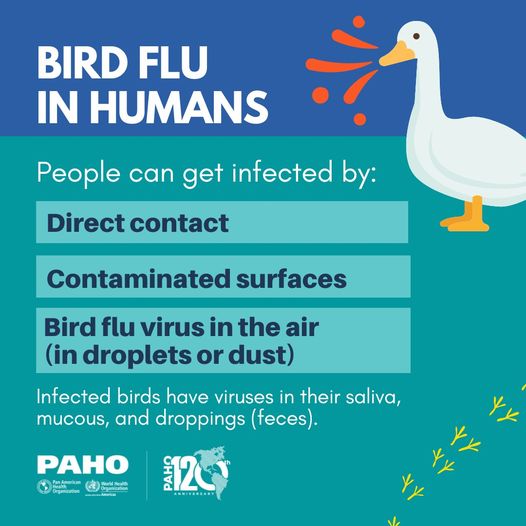Bird flu
Bird flu, or avian flu, is an infectious type of influenza that spreads among birds. In rare cases, it can affect humans.
There are lots of different strains of bird flu virus. Most of them don't infect humans. But there are 4 strains that have caused concern in recent years:
- H5N1 (since 1997)
- H7N9 (since 2013)
- H5N6 (since 2014)
- H5N8 (since 2016)
How bird flu spreads to humans
Bird flu is spread by close contact with an infected bird (dead or alive).
This includes:
- touching infected birds
- touching droppings or bedding
- killing or preparing infected poultry for cooking
Markets where live birds are sold can also be a source of bird flu. Avoid visiting these markets if you're travelling to countries that have had an outbreak of bird flu.
You can't catch bird flu through eating fully cooked poultry or eggs, even in areas with an outbreak of bird flu.
Things you can do to prevent bird flu
If you're visiting a foreign country that's had an outbreak you should:
- wash your hands often with warm water and soap, especially before and after handling food, in particular raw poultry
- use different utensils for cooked and raw meat
- make sure meat is cooked until steaming hot
- avoid contact with live birds and poultry
What not to do:
- do not go near or touch bird droppings or sick or dead birds
- do not go to live animal markets or poultry farms
- do not bring any live birds or poultry back to the UK, including feathers
- do not eat undercooked or raw poultry or duck
- do not eat raw eggs
There is no bird flu vaccine. The seasonal flu vaccine doesn't protect against bird flu.
Thanks for reading Bird Flu, How can I catch it?
« Prev Post
Next Post »



No comments:
Post a Comment